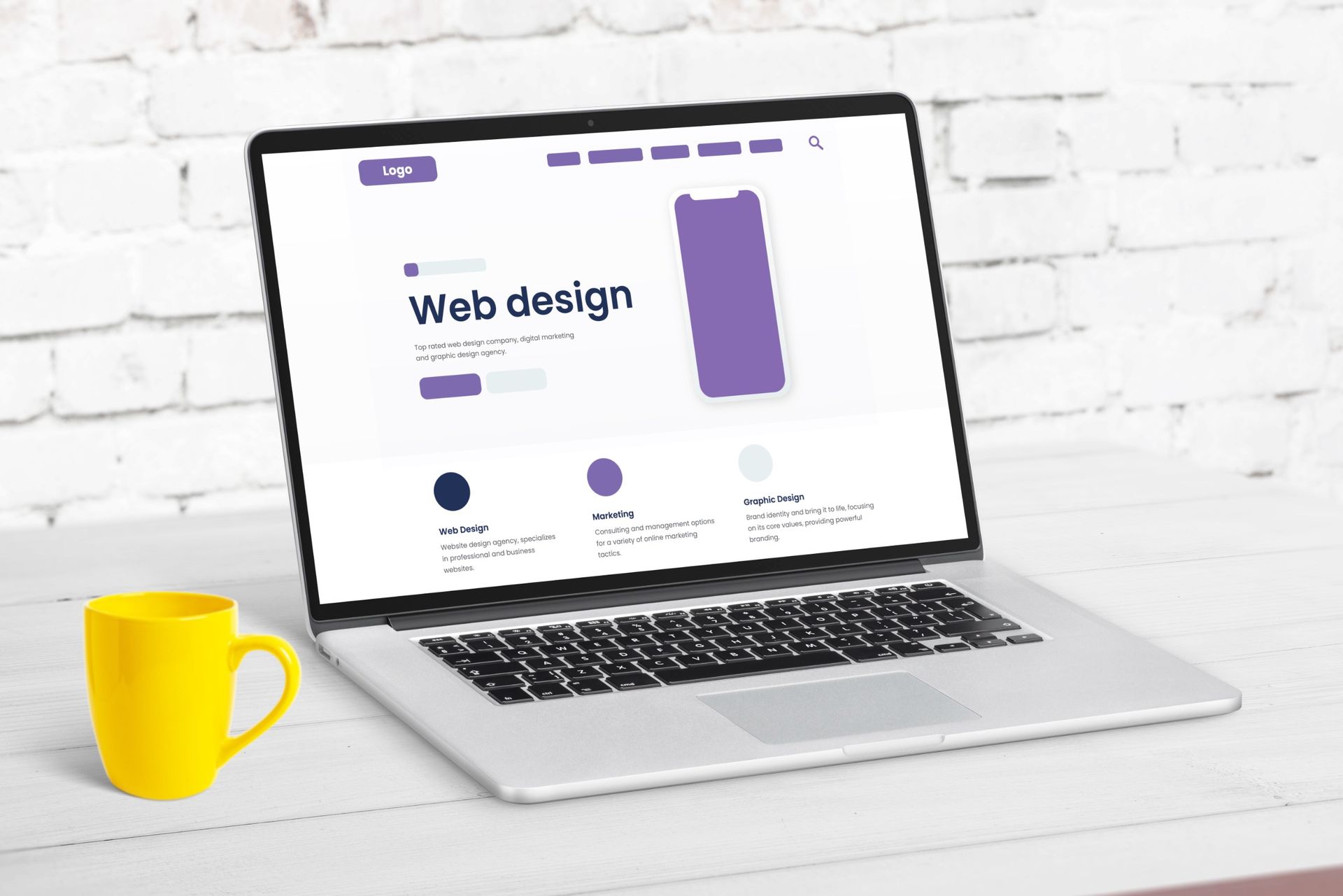Why Do I Need a Website? 7 Reasons Why Having a Website Is a Must
Having a website is crucial for any business, providing a platform to engage with potential customers and showcase your offerings. A custom website design in Raleigh ensures your site reflects your brand’s unique identity and appeals to your target audience. Additionally, a professional website enhances your credibility, making it easier for customers to find and trust your business. Collaborating with a digital marketing agency in Raleigh can optimize your website’s performance, integrating effective strategies to drive traffic and increase conversions. Embrace the benefits of a well-designed website to strengthen your online presence and achieve long-term business success.
Having a website is crucial in today's digital age. It serves as your online storefront, open 24/7 for potential customers.
A well-designed site can boost your credibility and showcase your services. If you're in the Raleigh area, custom website design is a game-changer.
It allows you to stand out and attract local customers. A unique website reflects your brand's personality and can give you an edge over competitors.
Plus, it's a great way to provide essential information quickly and efficiently. Investing in custom website design in Raleigh could be the key to growing your business.
In this blog post, we'll discuss seven reasons why having a website is a must for any business owner.
1. Increased Visibility and Accessibility
With a website, your business can be found online by people looking for your products or services. It acts like a digital business card that anyone can access at any time.
This means even when your physical store is closed, customers can still learn about what you offer. A website makes it easier for people to find you, no matter where they are.
This increased visibility can attract more customers to your business.
SEO Benefits
A well-optimized website can significantly enhance your search engine visibility. Using SEO techniques, you can ensure your business appears in search results when potential customers look for your products or services.
This organic traffic is invaluable, driving potential customers directly to your virtual doorstep.
2. Building Brand Credibility
In today’s marketplace, credibility is currency. Consumers tend to trust businesses that have a professional online presence.
A well-designed, informative website serves as a testament to your legitimacy and commitment to your business. It allows you to showcase customer testimonials, display certifications, and provide detailed information about your business.
First Impressions Matter
Remember, your website often serves as the first point of contact between you and your potential customers. An outdated or poorly designed website can turn prospects away.
Conversely, a sleek, modern website can leave a lasting positive impression, encouraging visitors to explore your offerings further.
3. Showcasing Products and Services
A website is an ideal platform to showcase what you offer. Whether you sell physical products, offer services, or both, a website allows you to present your offerings in a visually appealing and organized manner.
High-quality images, detailed descriptions, and customer reviews can provide potential customers with all the information they need to make informed purchase decisions.
Dynamic Content
Unlike traditional print media, a website allows you to update and change content dynamically. You can introduce new products, offer special promotions, and even create engaging blog posts that highlight the unique aspects of your business.
This keeps your audience engaged and encourages repeat visits.
4. Cost-Effectiveness and Marketing
Compared to traditional advertising methods like print ads, billboards, or TV commercials, a website is a cost-effective marketing tool. The initial investment in setting up a website is relatively low, and the returns can be substantial.
Digital marketing strategies such as email marketing, social media integration, and content marketing are all more effective when centered around a robust website.
Analytics and Tracking
One of the significant advantages of digital marketing through a website is the ability to track performance. Tools like Google Analytics can provide insights into how visitors interact with your site.
This data is invaluable for refining your marketing strategies and ensuring you get the best return on your investment.
5. Gathering Customer Insights
Understanding your customers is key to business success. A website can be an excellent tool for gathering insights into customer behavior and preferences.
By analyzing website traffic and user interactions, you can gain a deeper understanding of what your customers are looking for, what attracts them, and what drives them away.
Feedback and Engagement
Features like contact forms, surveys, and comment sections allow for direct customer feedback. This can provide qualitative insights into customer satisfaction, expectations, and areas for improvement.
Leveraging this data enables you to tailor your offerings and marketing strategies to better meet your customers' needs.
6. Staying Competitive
In an ever-evolving digital landscape, staying competitive means keeping up with industry standards. Many of your competitors already have websites, and not having one puts you at a significant disadvantage.
Industry Trends
Customers expect businesses to have an online presence. Failing to meet this expectation can lead to missed opportunities and lost sales.
By maintaining a current, optimized website, you ensure that your business remains relevant and competitive in the digital age.
7. Convenient Customer Service
A website can also be a powerful tool for enhancing customer service.
Features such as FAQs, live chat, and resource centers can provide customers with instant answers to their questions, reducing the need for direct contact and saving time for both parties.
E-commerce and Online Transactions
If you sell products, an e-commerce-enabled website allows customers to make purchases directly online. This not only boosts sales but also broadens your customer base beyond your local area.
Conclusion
In summary, a website is no longer optional for small businesses—it’s a necessity.
From increasing visibility and building credibility to showcasing products and gathering customer insights, the benefits of having a website are manifold.
In a competitive business environment, a website provides the edge you need to succeed.









